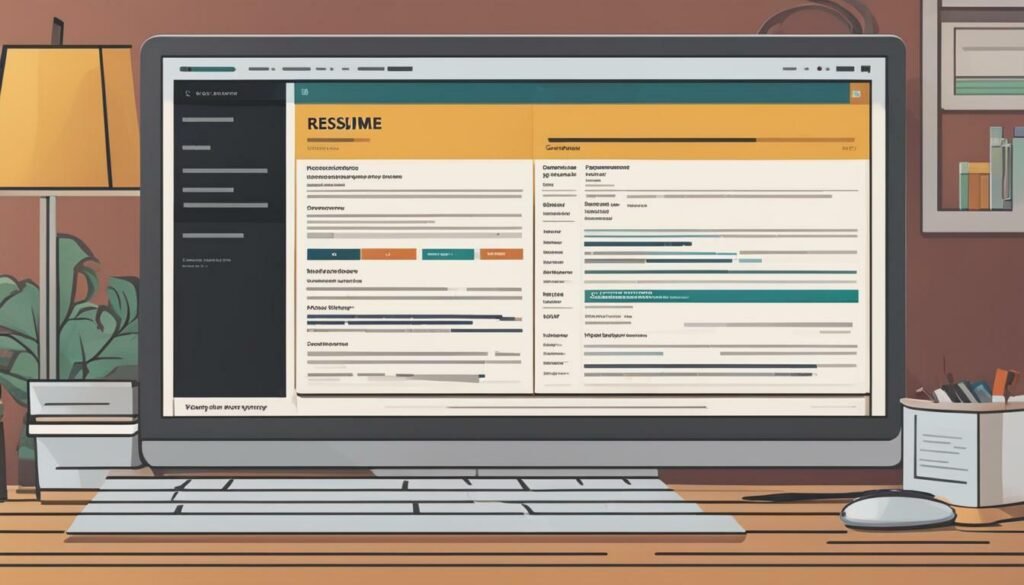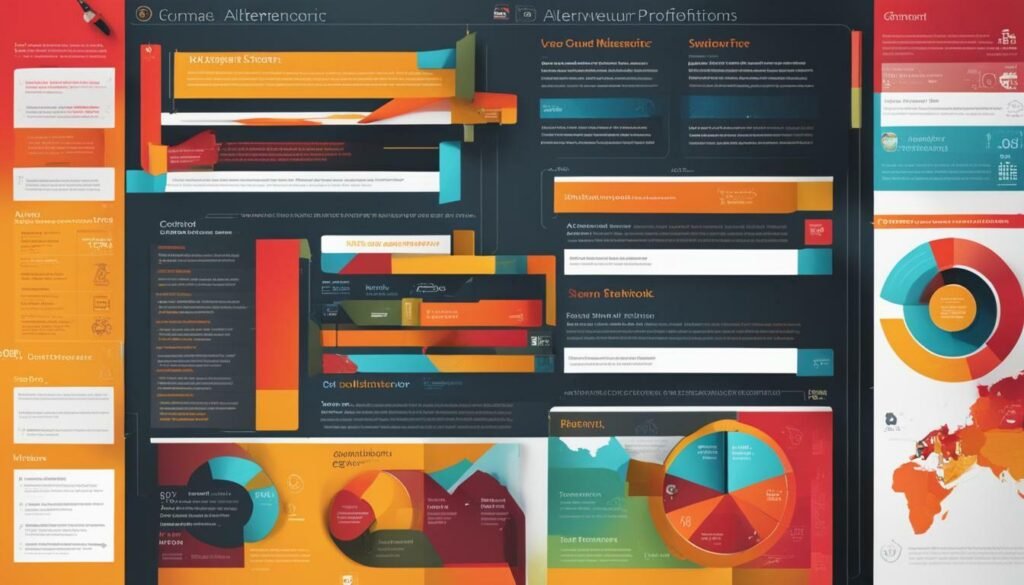Wondering if you should include a summary on your resume in 2023? Discover why it’s important and get practical tips to improve your chances of success.
A resume summary, also known as a professional summary or resume statement, is a brief overview of your qualifications and achievements that is placed at the beginning of your resume. It should provide a snapshot of your best qualifications and highlight why you are the ideal candidate for the job. A resume summary is recommended for applicants with extensive experience, impressive accomplishments, or a history of quick advancement within their field. On the other hand, if you are a new graduate or your work experience is run-of-the-mill, it may be best to omit the summary and focus on showcasing your skills and experience in other sections of your resume.
When writing a resume summary, it should be concise, include relevant keywords, quantify achievements with hard facts, and be tailored to the specific position. A well-crafted summary can catch the attention of hiring managers and set you apart from other applicants.
Key Takeaways:
- A resume summary provides a brief overview of your qualifications and achievements.
- It is recommended for applicants with extensive experience or impressive accomplishments.
- If you have limited work experience, it may be best to focus on other resume sections.
- A well-crafted summary should be concise, include relevant keywords, and quantify achievements.
- Tailor your resume summary to each specific job application for maximum impact.
Understanding the Importance of Resume Summaries
A resume summary serves as a powerful introduction to your qualifications and achievements, making it an essential component of your resume in 2023. Let’s explore the key guidelines to effectively craft a compelling summary.
A resume summary, also known as a professional summary or resume statement, is a brief overview of your qualifications and achievements that is placed at the beginning of your resume. It should provide a snapshot of your best qualifications and highlight why you are the ideal candidate for the job.
When writing a resume summary, it is important to follow certain best practices and guidelines. First, keep it concise. Aim for two to three sentences that succinctly summarize your most relevant skills and experiences. This will grab the attention of hiring managers, who often spend just a few seconds scanning each resume.
| Resume Summary Best Practices | Resume Summary Guidelines |
|---|---|
| Keep it concise | Aim for two to three sentences |
| Incorporate relevant keywords | Identify keywords from the job description |
| Quantify achievements with hard facts | Use numbers and statistics to highlight accomplishments |
| Tailor it to the specific position | Highlight skills and experiences that align with the job requirements |
In addition to being concise, your resume summary should incorporate relevant keywords. Identify these keywords by carefully reviewing the job description and incorporating them naturally into your summary. This will help your resume pass through applicant tracking systems and catch the attention of hiring managers.
Furthermore, quantifying your achievements with hard facts is a great way to make your resume summary more impactful. Instead of simply stating that you “increased sales,” provide specific numbers and statistics to showcase your success, such as “increased sales by 50% within six months.”
Incorporating Relevant Keywords in Your Resume Summary
Lastly, it is crucial to tailor your resume summary to the specific position you are applying for. Highlight the skills and experiences that directly align with the job requirements to demonstrate your suitability for the role. By customizing your summary for each application, you can make a stronger impression on potential employers.

Remember, a well-crafted resume summary can significantly enhance your chances of landing an interview. Follow these best practices and guidelines to create a compelling summary that effectively showcases your qualifications and convinces hiring managers that you are the perfect fit for the job.
Who Should Include a Resume Summary?
Not sure if you should have a resume summary? We’ll help you understand if it’s necessary based on your qualifications and explain the benefits it can bring to your job search.
A resume summary is recommended for applicants with extensive experience, impressive accomplishments, or a history of quick advancement within their field. If you have a wealth of relevant experience and want to make a strong first impression, a well-crafted summary can help you stand out to potential employers.
By including a resume summary, you provide hiring managers with a snapshot of your best qualifications and achievements, giving them a clear understanding of why you are the ideal candidate for the job. It allows you to showcase your unique selling points and highlights the value you can bring to an organization.
However, if you are a new graduate or your work experience is run-of-the-mill, it may be best to omit the summary and focus on showcasing your skills and experience in other sections of your resume, such as education, internships, or relevant coursework. In these instances, it is important to highlight the specific skills and knowledge you possess that make you a strong fit for the position.
Table 1: Pros and Cons of Including a Resume Summary
| Pros | Cons |
|---|---|
| Highlights your best qualifications and accomplishments. | May not be necessary for those with limited experience. |
| Allows you to stand out to potential employers. | Could take up valuable space on your resume. |
| Provides a concise overview for hiring managers. | May not be relevant for all industries or positions. |
| Shows your unique selling points. | Requires careful crafting and revision. |

When writing a resume summary, it is important to keep it concise and to the point. Use action verbs and specific examples to demonstrate your achievements. Additionally, make sure to incorporate relevant keywords that are specific to the job you are applying for. Quantify your accomplishments with hard facts whenever possible to add credibility to your claims.
Remember, a resume summary should always be tailored to the specific position you are applying for. By aligning it with the requirements and qualifications listed in the job description, you can showcase your suitability for the role and increase your chances of landing an interview.
Crafting a Concise and Engaging Resume Summary
Learn the best practices and guidelines for crafting a resume summary that grabs attention, aligns with your career goals, and helps you stand out in a competitive job market.
A resume summary is a critical component of your resume, providing a snapshot of your qualifications and achievements to hiring managers. To create a concise and engaging summary, follow these guidelines:
- Keep it brief: Aim for 3-4 impactful sentences that highlight your most relevant skills, experiences, and accomplishments.
- Incorporate keywords: Use industry-specific keywords that align with the job requirements to increase the chances of your resume getting noticed by applicant tracking systems (ATS) and hiring managers.
- Quantify achievements: Whenever possible, quantify your accomplishments with hard facts and numbers to demonstrate the tangible impact you’ve made in previous roles.
- Tailor it to the position: Customize your resume summary for each job application by highlighting the specific qualifications and skills that make you an ideal fit for the role.
By following these best practices, you can create a resume summary that effectively showcases your qualifications and entices hiring managers to explore your entire resume. Remember to review and revise your summary regularly to ensure it remains up-to-date and relevant to your career goals.
Example of a Well-Crafted Resume Summary
Results-oriented marketing professional with 5+ years of experience in developing and executing successful digital marketing campaigns. Demonstrated expertise in leveraging data analytics to drive targeted strategies and achieve a 30% increase in customer engagement. Proven ability to manage cross-functional teams and deliver projects within strict deadlines. Seeking a senior-level marketing role to utilize my skills and drive business growth.
Now, armed with the knowledge of resume summary best practices, you can refine your own summary and make a strong impression on potential employers. Remember, a well-crafted resume summary can be the key to opening doors to exciting career opportunities.

Discover why including relevant keywords in your resume summary is crucial and learn how to strategically incorporate them to enhance your chances of getting noticed by employers.
When crafting your resume summary, it’s important to understand that employers often use applicant tracking systems (ATS) to filter through a large volume of resumes. These ATS scan resumes for specific keywords that are relevant to the job description and industry. By including these keywords in your summary, you increase the likelihood of your resume making it past the initial screening process and reaching the hands of hiring managers.
To identify relevant keywords, carefully review the job description and make note of the skills, qualifications, and requirements mentioned. These keywords can include specific technical skills, industry-specific jargon, or desired personality traits. Once you have identified the keywords, strategically incorporate them throughout your resume summary to highlight your alignment with the job requirements.
| Resume summary example: |
|---|
| Results-driven marketing professional with 5+ years of experience managing successful digital campaigns. Skilled in SEO, SEM, and social media marketing, with a proven track record of increasing website traffic and generating leads. Strong analytical skills and a strategic mindset to optimize marketing strategies and deliver measurable results. Seeking a challenging role in a dynamic organization where I can utilize my expertise to drive brand awareness and achieve business objectives. |
By including keywords such as “results-driven,” “digital campaigns,” “SEO,” and “SEM” in the example resume summary above, you are not only showcasing your qualifications but also signaling to the ATS and hiring managers that you possess the desired skills and experience.
Remember, the goal of your resume summary is to quickly and effectively communicate your value to potential employers. By incorporating relevant keywords, you increase your chances of standing out among other applicants and securing interviews for the positions you desire.

- Including relevant keywords in your resume summary is crucial to pass the applicant tracking systems (ATS) and get noticed by employers.
- Identify keywords by carefully reviewing the job description and noting the skills, qualifications, and requirements mentioned.
- Strategically incorporate these keywords throughout your resume summary to demonstrate your alignment with the job requirements.
- By optimizing your resume summary with relevant keywords, you increase your chances of standing out and securing interviews for your desired positions.
Quantifying Achievements with Hard Facts in Your Resume Summary
Highlighting your accomplishments with concrete numbers and figures in your resume summary can make a strong impact on employers. Find out how to quantify your achievements and make them stand out.
When crafting your resume summary, it’s essential to provide tangible evidence of your successes. By quantifying your achievements, you demonstrate your ability to deliver results and contribute effectively to potential employers. Using numbers and figures helps provide context and makes your accomplishments more impactful.
Here are some best practices for quantifying your achievements in your resume summary:
- Use specific numbers: Instead of stating that you “increased sales,” specify that you “increased sales by 20% within six months.”
- Include percentages: If you improved a certain metric, such as customer satisfaction, mention the percentage increase or decrease.
- Showcase dollar amounts: If you generated revenue or saved the company money, mention the exact amount to highlight the value you bring.
- Highlight time-related achievements: If you completed projects ahead of schedule or met tight deadlines consistently, quantify the time saved.
By incorporating these quantifiable details, you provide concrete evidence of your abilities and make a strong impression on hiring managers. Remember to tailor your resume summary to each specific position, using keywords that are relevant to the job description. This ensures that your achievements align with the requirements of the role and demonstrate your suitability as a candidate.
| Resume Summary Example: |
|---|
| Dynamic sales professional with a proven track record of increasing revenue by 25% year-over-year. Consistently exceeded monthly targets and developed strategic partnerships to drive business growth. Proficient in CRM software and skilled in negotiating lucrative deals. Recognized for exceptional client relationship management and ability to lead high-performing sales teams. Seeking a challenging sales management position to utilize my expertise and drive sales success. |

By following these resume summary best practices and incorporating quantifiable achievements, you can create a compelling summary that captures the attention of recruiters and sets you apart from other applicants. Remember to be concise, utilize relevant keywords, and tailor your summary to the specific position you are applying for. With a well-crafted resume summary, you can highlight your qualifications effectively and increase your chances of landing your dream job.
Tailoring Your Resume Summary to the Specific Position
Discover why customizing your resume summary to match the needs and qualifications of the job you’re applying for can significantly improve your chances of success.
A resume summary is a crucial component of your resume, as it provides a concise overview of your qualifications and achievements. However, a generic summary may not make the impact you desire. To truly stand out to potential employers, it is important to tailor your resume summary to the specific position you are applying for.
When customizing your resume summary, consider the job description and requirements provided by the employer. Identify keywords and phrases that are relevant to the role and industry. Incorporate these keywords strategically into your summary, showcasing how your skills and experience align with the employer’s needs. By doing so, you demonstrate that you have carefully reviewed the job requirements and that you possess the desired qualifications.
Additionally, highlight specific accomplishments or experiences that directly relate to the position. If the job requires excellent problem-solving skills, mention a situation where you successfully resolved a complex issue. If the role emphasizes teamwork, discuss a project in which you collaborated effectively with a diverse team. Tailoring your resume summary in this way shows employers that you have the necessary expertise and are a strong fit for the role.
| Benefits of Tailoring Your Resume Summary: |
|---|
| Increases the likelihood of catching the employer’s attention |
| Demonstrates that you understand the needs of the company |
| Highlights your relevant skills and experiences |
| Shows that you are a strong fit for the position |
Remember, a well-crafted resume summary that is tailored to the specific position can make a significant difference in the hiring process. It allows you to showcase your qualifications in a way that resonates with the employer and increases your chances of getting an interview. So take the time to customize your resume summary and make a powerful impression on potential employers.
Alternatives to a Resume Summary for New Graduates and Entry-Level Professionals
If you’re a recent graduate or lack extensive work experience, there are alternative ways to showcase your skills and qualifications effectively on your resume. Let’s explore those options.
1. Focus on your education and coursework: Highlight your academic achievements, relevant coursework, and any honors or awards you received during your studies. This will demonstrate your commitment to learning and your ability to apply theoretical knowledge to practical situations.
2. Emphasize internships and volunteer work: If you have completed internships or volunteered in your field, make sure to include them prominently on your resume. These experiences can provide valuable hands-on experience and demonstrate your dedication to gaining practical skills.
3. Include relevant projects and class assignments: If you’ve worked on projects or completed assignments that are relevant to the job you’re applying for, showcase them on your resume. This can demonstrate your ability to apply your skills in real-world scenarios and your creative problem-solving abilities.
| Resume Section | Content |
|---|---|
| Education | List your educational background, including your degree, major, and any relevant coursework or academic achievements. |
| Internships/Volunteer Work | Provide details about any internships or volunteer work you have completed, including the organization, your role, and the skills or responsibilities you gained. |
| Projects/Assignments | Highlight any relevant projects or class assignments you have completed, including a brief description of the project and the skills you utilized or developed. |
“While a resume summary can be beneficial for experienced professionals, new graduates and entry-level professionals can effectively showcase their skills and qualifications through other resume sections.”
By leveraging these alternative resume sections, you can demonstrate your capabilities and potential to employers, even if you lack extensive work experience. Remember to tailor your resume to each job application, focusing on the skills and experiences that are most relevant to the position you are applying for. With a well-crafted resume, you can make a strong impression and increase your chances of landing your desired job.

Not including a resume summary doesn’t mean you can’t impress employers with your skills and experience. In fact, there are several effective ways to showcase your qualifications in other sections of your resume. By strategically highlighting your skills and experience throughout your resume, you can still make a strong impression on potential employers.
One way to showcase your skills is by creating a dedicated “Skills” section on your resume. This section allows you to list specific skills that are relevant to the job you’re applying for. Be sure to include both hard skills, such as technical abilities or certifications, and soft skills, such as communication or leadership abilities. Use bullet points to make your skills easy to read and scan for hiring managers.
Another way to highlight your experience is by incorporating it into your work history section. When describing your previous roles, focus on the accomplishments and contributions you made in each position. Use action verbs and quantify your achievements with concrete numbers or statistics. This will not only show your skills in action but also provide evidence of your impact in previous roles.
Additionally, you can utilize the “Projects” or “Achievements” section to showcase specific projects or accomplishments that demonstrate your skills and experience. This can be particularly effective if you have relevant projects or achievements that are outside of your work history. Use bullet points to briefly describe each project or achievement and emphasize the skills and results that were achieved.
Table: Examples of Skill Highlighting in Different Resume Sections
| Resume Section | Example |
|---|---|
| Skills | – Proficient in Microsoft Office Suite – Strong problem-solving and analytical thinking skills – Excellent written and verbal communication abilities |
| Work History | – Increased sales revenue by 15% through the implementation of targeted marketing strategies – Led a team of 10 employees, resulting in a significant improvement in customer satisfaction ratings |
| Projects | – Developed a mobile app that generated over 10,000 downloads within the first month of launch – Led a cross-functional team to successfully complete a website redesign project ahead of schedule |
By strategically highlighting your skills and experience in these various sections of your resume, you can effectively demonstrate your qualifications to potential employers. Remember to tailor your resume to each specific job application, focusing on the skills and experiences that are most relevant to the position. With a well-crafted resume that showcases your abilities, you can increase your chances of securing the job you desire.

Learn how to wrap up your resume with a well-crafted summary that reinforces your qualifications and leaves a positive, memorable impact on hiring managers.
When finalizing your resume, the summary section is your opportunity to make a strong impression. Start by reviewing the best practices and guidelines for creating a compelling resume summary. Keep it concise, focusing on your most relevant skills, experiences, and accomplishments. This section should showcase your unique value and why you are the ideal candidate for the job.
One effective strategy is to incorporate keywords that align with the job description. This will help your resume pass through automated systems and catch the attention of recruiters. Additionally, quantifying your achievements with hard facts can provide concrete evidence of your capabilities. Use numbers, percentages, or other measurable metrics to highlight your successes.
Remember to tailor your resume summary to each specific position you apply for. Customize it to match the requirements of the job and emphasize the skills and experiences that are most relevant. By doing so, you demonstrate your understanding of the role and make it easier for hiring managers to see your fit.
| Resume Summary Best Practices | Resume Summary Guidelines | Resume Summary for Job Search |
|---|---|---|
| Keep it concise | Incorporate relevant keywords | Highlight your skills and experiences |
| Quantify achievements with hard facts | Tailor it to the specific position | Customize it for each application |
Remember, your resume summary is your chance to make a lasting impression on hiring managers. By following these best practices and guidelines, you can create a compelling summary that sets you apart from other candidates and increases your chances of landing the job of your dreams.

Including a well-written resume summary can significantly enhance your chances of landing your desired job. A resume summary, also known as a professional summary or resume statement, is a brief overview of your qualifications and achievements that is placed at the beginning of your resume. It provides a snapshot of your best qualifications and highlights why you are the ideal candidate for the job.
When crafting your resume summary, keep in mind these key tips and guidelines to create a compelling summary that sets you apart from other applicants. Firstly, ensure that your summary is concise and to the point, highlighting your most relevant skills and experiences. Use action verbs and specific examples to showcase your accomplishments and demonstrate the value you can bring to a potential employer.
Additionally, it is important to incorporate relevant keywords in your resume summary. This will help ATS (Applicant Tracking Systems) identify your resume and increase its chances of being selected for further review. Research the job description and industry trends to identify the keywords that align with the position you are applying for.
Lastly, tailor your resume summary to each specific job application. This means customizing it to highlight the skills and qualifications that are most relevant to the position. By doing so, you show the employer that you have taken the time to understand their needs and prove that you are the perfect fit for the role.
By following these resume summary best practices and guidelines in 2023, you can create a powerful summary that captures the attention of hiring managers and helps you land the job you desire.FAQ
Do I need a summary on my resume in 2023?
Yes, having a resume summary is still important in 2023. It provides a snapshot of your best qualifications and helps you stand out to potential employers.
Why is a resume summary important?
A resume summary highlights your qualifications and achievements, making it easier for employers to see why you are the ideal candidate for the job. It also helps grab their attention and encourages them to read your entire resume.
Who should include a resume summary?
A resume summary is recommended for applicants with extensive experience, impressive accomplishments, or a history of quick advancement within their field. However, if you are a new graduate or have limited work experience, it may be best to focus on other resume sections.
How can I craft a concise and engaging resume summary?
To create a concise and engaging resume summary, focus on your most relevant qualifications and achievements. Keep it brief, use action verbs, and highlight your unique selling points. Tailor your summary to the specific position you are applying for.
Should I incorporate keywords in my resume summary?
Yes, incorporating relevant keywords in your resume summary can help your resume get past applicant tracking systems and increase your chances of being noticed by hiring managers. Research the keywords commonly used in your industry and include them in a natural and meaningful way.
How can I quantify my achievements in my resume summary?
Quantifying your achievements with hard facts in your resume summary adds credibility and showcases your impact. Whenever possible, include numbers, percentages, or specific results to quantify your accomplishments and make them more tangible.
Should I tailor my resume summary to each specific position?
Yes, tailoring your resume summary to each specific position is important. Customize it to align with the requirements and qualifications mentioned in the job description. This shows that you have carefully read and understood the job requirements and that you are a good fit for the role.
What are alternatives to a resume summary for new graduates and entry-level professionals?
Instead of a resume summary, new graduates and entry-level professionals can focus on highlighting their skills, education, internships, relevant coursework, and extracurricular activities in other sections of their resume. This helps showcase their potential and transferable skills.
How can I finalize my resume with a compelling summary?
To finalize your resume with a compelling summary, review the entire document to ensure it is concise, error-free, and well-structured. Check that your summary aligns with the rest of the information provided and creates a strong, cohesive narrative that highlights your qualifications and achievements.
Why is including a well-crafted summary on your resume important in 2023?
Including a well-crafted summary on your resume in 2023 is important because it helps you stand out among other applicants and effectively showcases your qualifications. It provides a quick overview of your skills and experiences, making it easier for employers to see why you are the right fit for the job.
Should I Include All of My Past Work Experience on My Resume?
When deciding on resume length, consider the relevance of your past work experience. Including all experiences may make your resume lengthy and unfocused. To streamline your resume, prioritize the most recent and relevant roles. Tailoring your resume to the specific job requirements will help you stand out to employers. Follow these resume length tips to create a concise and impactful document.
Should My Resume Summary Include Information About My Past Jobs?
When it comes to your resume summary, it’s important to keep the focus on your skills, achievements, and career goals. Including too much detail about past jobs on resume limit can clutter the summary and make it less impactful. Instead, highlight your most relevant experience and how it aligns with the job you’re applying for.
